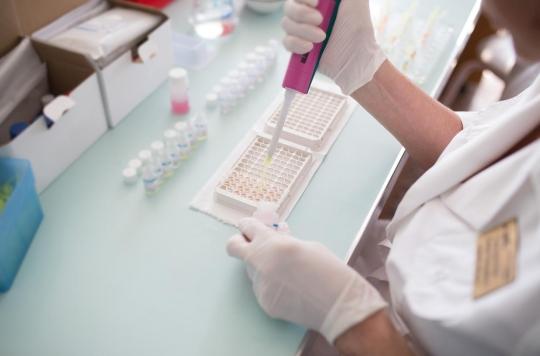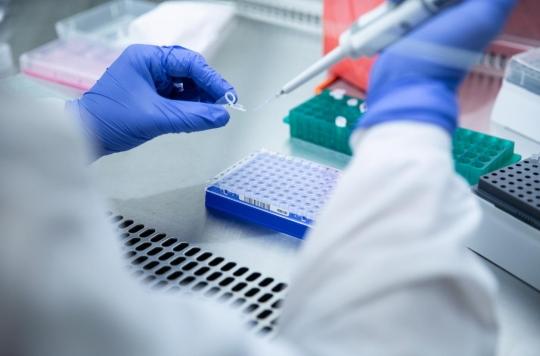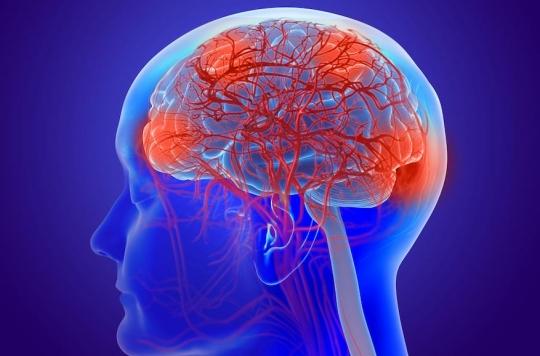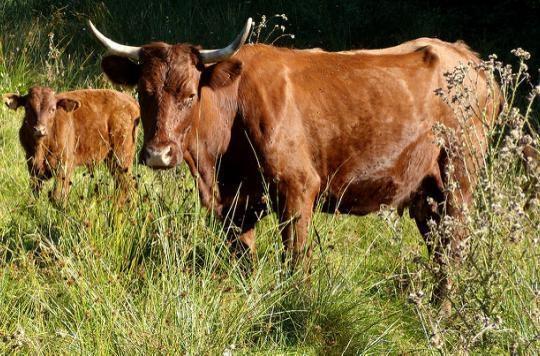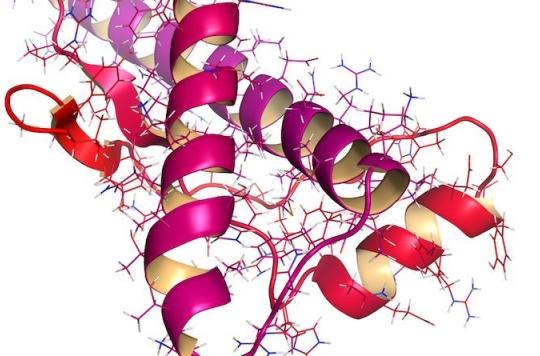Researchers have developed a compound capable of blocking the accumulation of prions in the brain responsible for mad cow disease.

A team of Franco-Swiss researchers has succeeded in blocking the infectious agents responsible for bovine spongiform encephalopathy (BSE), better known as mad cow disease, thanks to a new molecule. A discovery published this Thursday in the journal Science Translational Medicine.
Tested in mice and hamsters, the compound designed by the researchers is a polythiophene. By blocking the agglutination of infectious prions – abnormal proteins that cause BSE – in the brain, this macro-molecule stops infection and the development of rare but often fatal neurodegenerative diseases. In humans, the accumulation of these abnormal proteins causes Creutzfeldt-Jakob disease.
Of all the polythiophenes developed by the researchers, one of the most promising candidates extended the life of infected mice by more than 80%. Thanks to the molecule, the latter presented less brain damage and clusters of pathological prions. It would appear that this candidate is effective against 2 different protein strains and early blocks the aggregation of prions as well as their replication, indicate scientists from the University of Zurich (Switzerland) and the Institute of Protein Biology and Chemistry in the University of Lyon (France).
Still no treatment
For the latter, polythiophenes pave the way for new treatments for prion diseases. A hopeful discovery when there is currently no preventive or curative treatment for the different forms of Creutzfeldt-Jakob disease. Medicines prescribed to patients are intended to calm certain symptoms such as muscle pain, tremors or involuntary movements.
After the first cases of mad cow (in animals) detected in the UK and the disease spread to cattle herds in Europe and around the world, many countries have taken preventive measures to secure diets. In France, from 1990, the use of animal meal – suspected of being at the origin of the epizootic – was banned. A ban extended to all farm animals in 2000. In France, the last case of BSE dates back to April 2004. For experts, this disease has virtually disappeared. The last case since 2013 was detected in Ireland and confirmed on June 25.
.








